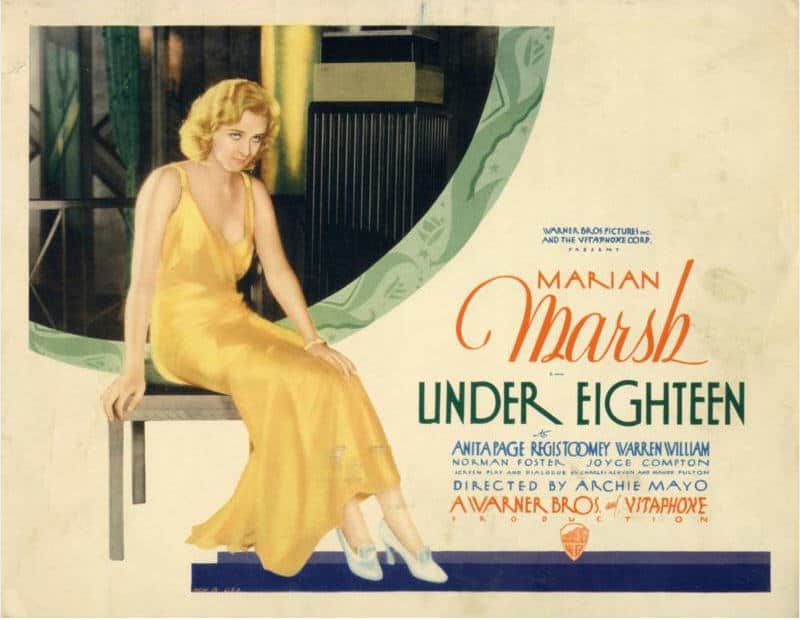Why not take off your clothes and stay awhile? – Warren William as Raymond Harding
Pre-code films have a reputation for being outrightly salacious, rampant with sexual themes and innuendos aplenty. Often time this correlated with a grittier and perhaps more realistic variety of topics than would occur just a few short years later.
Yet not was always the case, as in Warner Brothers’ 1931 film Under Eighteen. From the title, you’ve perhaps already gotten an idea what the film might be about. But not so fast, viewers! Outside of perhaps a passing reference to the main character’s potential age, the title has absolutely nothing to do with the resulting product.
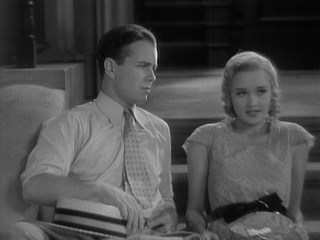 That said, there is definitely enough subtle (and some not so subtle) language and imagery which makes this a clearly pre-code film. Most notably are the thinly veiled hints of abortion (when Sophie announces she’s pregnant again), the numerous scenes of people (usually Marian Marsh) scantily clad and that scene with Warren William in the pool and his latest ‘friend.’ Although as an aside I didn’t realize (never thought about it) that they had inflatable pool toys in 1931.
That said, there is definitely enough subtle (and some not so subtle) language and imagery which makes this a clearly pre-code film. Most notably are the thinly veiled hints of abortion (when Sophie announces she’s pregnant again), the numerous scenes of people (usually Marian Marsh) scantily clad and that scene with Warren William in the pool and his latest ‘friend.’ Although as an aside I didn’t realize (never thought about it) that they had inflatable pool toys in 1931.
Directed by Archie Mayo, Under Eighteen is from a time when Warners was the studio of the working class, with many of its features focusing on blue collar issues and families. Here it is a tale of two sisters, Margie (Marian Marsh) and Sophie (Anita Page). Sophie’s just gotten married but soon thereafter she has to move into sister Margie’s small New York City apartment with her husband and child in tow.
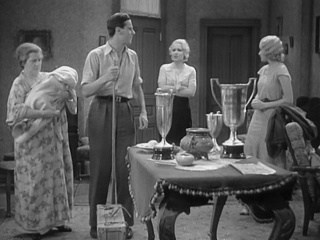 It’s the pits of the depression and her husband Alf (Norman Foster) is out of work, having lost everything. Yet he still lives in the past, being almost oblivious to his family’s plight. He’s got no ambition to get work and his prized possessions are a collection of old billiards trophies.
It’s the pits of the depression and her husband Alf (Norman Foster) is out of work, having lost everything. Yet he still lives in the past, being almost oblivious to his family’s plight. He’s got no ambition to get work and his prized possessions are a collection of old billiards trophies.
Finally, after suffering taunts and jabs from the balance of the family over his laziness, Alf lashes out and smacks Sophie a good one. Sophie vows divorce but can’t afford the $200 legal fee, so she turns to sister Margie for help.
Now Margie has her own man, fiancé Jimmie (Regis Toomey) who is a delivery driver. Put off to marriage by Sophie’s issues, Margie calls off the wedding, though she does ultimately hit Jimmie up for the $200- though he declines once he finds out what the money is for.
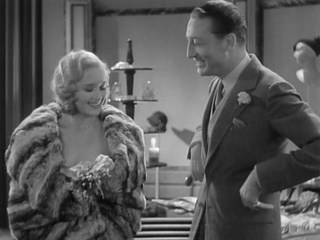 She also hits up her boss Francois (Paul Porcasi) at the fashion boutique where she works as a seamstress. He also declines so she finally turns to wealthy playboy Raymond Harding (Warren William). He agrees to loan her the money, but there are strings implied. She agrees reluctantly but as she does so Jimmie barges in.
She also hits up her boss Francois (Paul Porcasi) at the fashion boutique where she works as a seamstress. He also declines so she finally turns to wealthy playboy Raymond Harding (Warren William). He agrees to loan her the money, but there are strings implied. She agrees reluctantly but as she does so Jimmie barges in.
Confronting Raymond, Jimmie hits him ‘a little low,’ dropping him to the ground. After telling off Margie Jimmie leaves, but Raymond is deathly ill and presumed dead. It’s only later that we learn that it wasn’t Jimmie’s punch which caused the incident, but rather some bad shrimp salad that Raymond had eaten earlier.
In a whirlwind ending, Margie ends up with more than enough money (as Raymond and Francois ultimately come through). Stranger Sophie and Alf (who’ve been AWOL from the movie for a good half-hour) have reconciled as Alf has (you guessed it) won a billiards tourney and made even more money by betting on himself.
With her faith in marriage restored, Margie goes back to Jimmie and all is well.
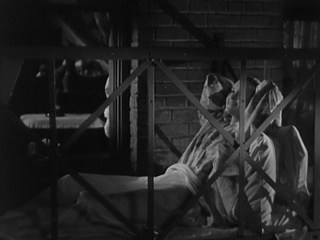 Under Eighteen is a pretty average film all around, though it does show as expected a bit more realism than other studios would have permitted. We get some interesting scenes of the New York skyline and Margie’s fire escape.
Under Eighteen is a pretty average film all around, though it does show as expected a bit more realism than other studios would have permitted. We get some interesting scenes of the New York skyline and Margie’s fire escape.
Also in a similar vein we get a view into the meager social lives of folks during the depression. Most of Margie’s dates with Jimmie are mere rides with him as he completes his delivery route. Wow, what romance!
The plot, simplistic as it seems works for what it is. The one downfall is the surprisingly formulaic ending, where everything seems to turn out just roses. The whole experience is clearly a showcase for Marian Marsh, a very popular star for the time. Although nothing in the film is bad, unless you’re a Marian Marsh fan you are likely to be a touch disappointed.
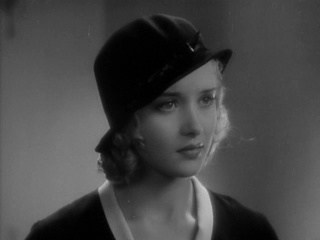 If anything the ending leaves a lot of loose (and potentially unhappy) loose ends. As it ends Margie’s learned that love is better than money, but she’s left with a loan which she no longer needs (though presumably she could just pay it off) and her sister is returning to an abusive marriage. In any case Sophie’s reconciliation seems short term, as though Alf got his windfall there’s no mention of a job, so eventually they’ll end up right back where they were.
If anything the ending leaves a lot of loose (and potentially unhappy) loose ends. As it ends Margie’s learned that love is better than money, but she’s left with a loan which she no longer needs (though presumably she could just pay it off) and her sister is returning to an abusive marriage. In any case Sophie’s reconciliation seems short term, as though Alf got his windfall there’s no mention of a job, so eventually they’ll end up right back where they were.
As for Miss Marsh, an actress I’m honestly not overly familiar with, the results are fairly good. Though Under Eighteen was a commercial flop and dimmed the lights on her then promising career, she gives an enjoyable performance in an interesting role.
Whereas the men are seemingly all flawed or struggling (Alf is lazy and out of work; Jimmie struggles before ultimately finding his way; Raymond’s flawed by his den of dubious morals), the women in the picture are all out making things happen. Margie herself goes through several options, all of which are viable, on her way to helping her sister.
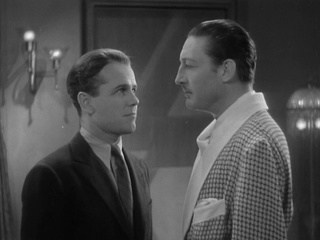 Warren William, in one of his earliest roles after leaving Broadway, comes close to overpowering the picture even in his limited role. Traditionally playing snarky employers or detectives, here he plays a bit of both.
Warren William, in one of his earliest roles after leaving Broadway, comes close to overpowering the picture even in his limited role. Traditionally playing snarky employers or detectives, here he plays a bit of both.
In his earliest scenes Raymond is definitely sleazy and circumspect, preying on young women with attention and expensive gifts. It is only later in his penthouse that this image begins to soften a bit. As they discuss the agreement they’d have to enter into for him to loan her the needed $200, Raymond is struck by Margie’s honesty and finally relents on his meager attempt at seduction transitioning almost seamlessly into a more mentoring role.
Under Eighteen isn’t a great film, but definitely deserved better than the paltry results it garnered on release.
